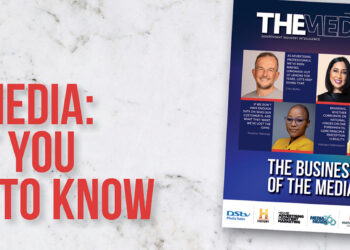The news that First National Bank is taking all their media buying and implementation in house is bound to send shivers down the spines of owners of media agencies around the country.
It’s a big move, the reasons for which are not too clear. Approached for comment, and given several questions that included whether cost was a factor in their decision, Bernice Samuels, the banking group’s chief marketing officer, would only say: “FNB will take media implementation and buying processes in-house later in the year. Media strategy has been done in house since 2009.
“The decision will enable a much closer relationship between our internal customers and the media buying process. We believe this strategy will deepen internal skills development and create a closer relationship between the bank and its media partners.”
Global trends reveal that media buying in house, in the digital space, has become much more common over the past few years. Nathan Levi, in a piece written for the Makegood site, says 45% of brands are now buying their paid search in house, up from 38% in 2008; 55% of brands do their SEO exclusively in house and a massive 70% of brands manage their social media by themselves (Econsultancy UK Search Engine Marketing Benchmarking Report 2012, May 2012).
“Some of the biggest brands in the US (i.e. Experian) now handle all their display media buying without an agency. I myself have worked with many brands showing an appetite to buy media themselves,” he writes.
Levi believes advances in technology are influencing how advertising is bought and sold, particularly online. “More and more media inventory can be purchased through self-service platforms. This is bringing the advertiser closer to the media source than ever before. Google has made in-house media buying too easy by removing the buying power element and providing one common global platform to buy on,” he says.
South African agency expert Harry Herber of The MediaShop believes taking media buying in house could be counter productive. “Media talent is really thin on the ground. So whether a client can put together a really hot team of media specialists is a moot point. Plus there is the environment in which media plans and strategy is conceptualised.
“You need to see what worked for other clients, what is being demanded by the cross-section of marketing experts out there, then bounce ideas off strategists working on totally diverse industries, and collaborate with as broad a cross section of brain power as possible. I don’t think a media department in a client environment can achieve this,” he says.
He calls into question a brand’s objectivity. “I’m also not sure if they can be objective, and provide the correct, hard yard solution. I always say we are there to give the right solution, not necessarily the popular solution.”
And he asks that if the decision to take buying and implementation in house is cost driven, is it really worth it? “I wonder if you really have to STRETCH, knowing you are not being measured against any industry competition. Really, for the 1% it costs in the end, I don’t get it.
“I think clients honestly think they are saving money. And it’s really 1%! For this they risk getting self-imposed mediocrity. But they will couch their decision in terms of everything else but price-closer relationships, internal skills development and so on. I ask why they didn’t demand, and get, this from their media agency, in the first place!”
It’s a view shared by Levi, who says: The truth be told many agencies struggle to make a margin from display media buying. More complex services like rich media tracking and implementation, dynamic creative testing and ad serving, attribution and measurement, coupled with the more mundane yet necessary components that include faxing IOs, billing and reconciliation, trafficking (I could go on and on) are all massive deterrents to brands thinking about going it alone.
“If agencies struggle to make a margin why would a brand want to take it on alone? There’s also the other challenge of finding talent in such a niche market, hiring good digital planners is very difficult, even in the US where the market is more mature. I don’t think these complexities are going away any time soon. We’re a long way off from having a single media trading and workflow platform. Until then many brands won’t want the headache of exclusive in house digital media buying.”
MEC Group South Africa, who currently handle the FNB media buying account, had not responded to questions at the time of publication.














